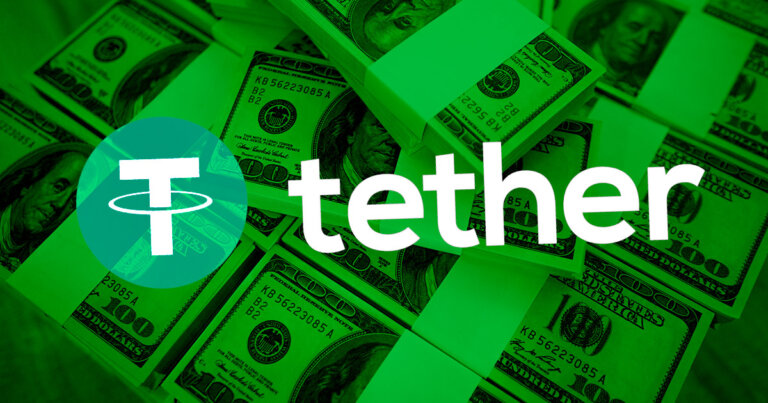 Tether USDT supply reaches $80B for 1st time in almost a year
Tether USDT supply reaches $80B for 1st time in almost a year Tether USDT supply reaches $80B for 1st time in almost a year
CryptoSlate's data showed that Tether's $25.05 billion trading volume in the last 24 hours is six times higher than that of its closest rival.

Cover art/illustration via CryptoSlate. Image includes combined content which may include AI-generated content.
Tether’s USDT supply crossed $80 billion for the first time in 11 months earlier today, nearing its all-time high of $83.13 billion.
In 2023, USDT’s supply increased by almost $14 billion in less than 100 days from the $66.2 billion it recorded at the start of the year.
This growth cements USDT’s market dominance among dollar-pegged stablecoins. According to CryptoSlate’s data, USDT accounts for roughly 61% of the total stablecoins in the market.
Besides that, CryptoSlate’s data showed that Tether’s $25.05 billion trading volume in the last 24 hours is six times higher than that of its closest rival, USD Coin (USDC).
Over 50% of Tether’s total supply was issued on Justin Sun’s Tron blockchain, according to DeFillama data.
Tether owes growth to competitors’ troubles
Tether’s growth has coincided with the regulatory and banking troubles for its major competitors, USDC and Binance USD (BUSD).
While BUSD was the fastest-growing stablecoin last year, recent regulatory troubles with Binance, alongside its issuer Paxos, have led to a massive exodus from the stablecoin.
In February, the New York Department of Financial Services (NYDFS) ordered Paxos to stop other mints of BUSD. Binance would later be sued by the U.S. Commodity Futures Trading Commission (CFTC) over allegations of regulatory violations.
These incidences saw BUSD supply drop to $7.1 billion from a peak of $22 billion in November 2022.
Meanwhile, USDC’s troubles began in March when it was revealed that it was exposed to the U.S. banking crisis. Its issuer Circle said it held part of the stablecoin reserves at the failed crypto-friendly bank Silicon Valley Bank.
Following the news, USDC briefly depegged to as low as $0.87 before later recovering its peg. However, investors’ confidence in the stablecoin remains low as its circulation has steadily declined throughout the past month.
The head of research at Matrixport, Markus Thielin, pointed this out in an April 6 note to clients. Thielin said:
“It would appear that holders of USDC either converted their Circle stablecoin into Tether’s USDT or that they simply sold $10 billion of USDC and bought bitcoin instead.”
According to CryptoSlate data, USDC supply sits at $32 billion at the time of writing.





 Farside Investors
Farside Investors 


 CoinGlass
CoinGlass 


























































































